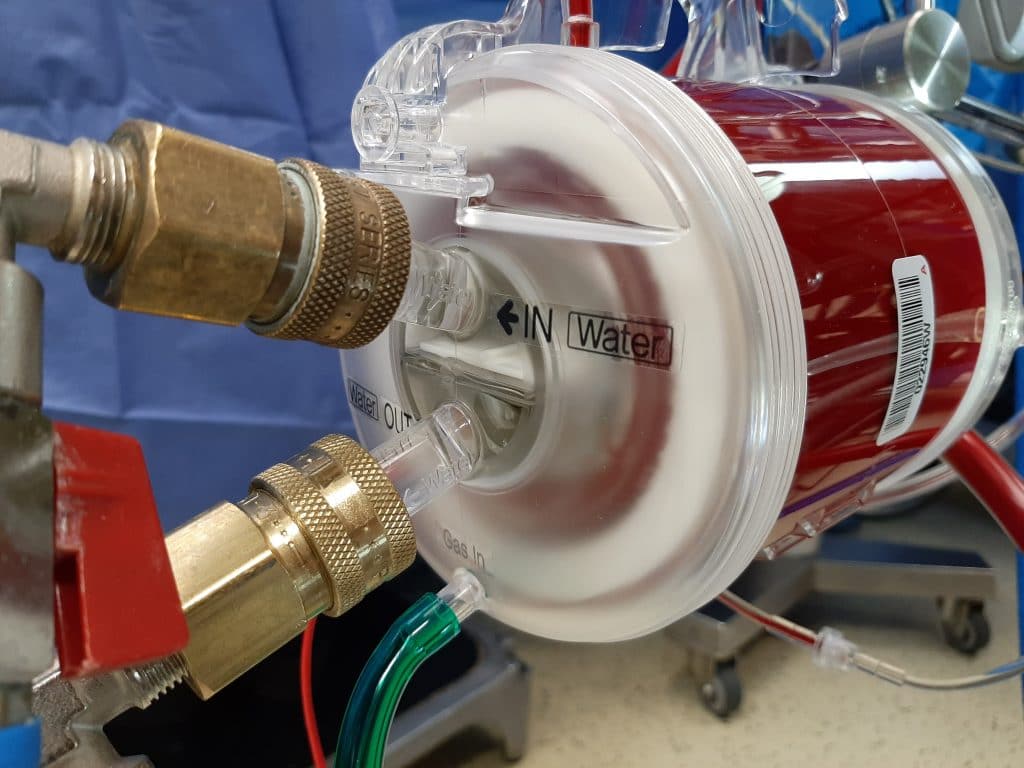The Early Change in PaCO2 after Extracorporeal Membrane Oxygenation Initiation Is Associated with Neurological Complications

Rationale
Large decreases in PaCO2 that occur when initiating extracorporeal membrane oxygenation (ECMO) in patients with respiratory failure may cause cerebral vasoconstriction and compromise brain tissue perfusion.
Objectives
To determine if the magnitude of PaCO2 correction upon ECMO initiation is associated with an increased incidence of neurological complications in patients with respiratory failure.
Methods
We conducted a multicenter, international, retrospective cohort study using the Extracorporeal Life Support Organization Registry, including adults with respiratory failure receiving ECMO via any mode between 2012 and 2017. The relative change in PaCO2 in the first 24 hours was calculated as (24-h post-ECMO PaCO2 − pre-ECMO PaCO2)/pre-ECMO PaCO2. The primary outcome was the occurrence of neurological complications, defined as seizures, ischemic stroke, intracranial hemorrhage, or brain death.
Measurements and Main Results
We included 11,972 patients, 88% of whom were supported with venovenous ECMO. The median relative change in PaCO2 was −31% (interquartile range, −46% to −12%). Neurological complications were uncommon overall (6.9%), with a low incidence of seizures (1.1%), ischemic stroke (1.9%), intracranial hemorrhage (3.5%), and brain death (1.6%). Patients with a large relative decrease in PaCO2 (>50%) had an increased incidence of neurological complications compared with those with a smaller decrease (9.8% vs. 6.4%; P < 0.001). A large relative decrease in PaCO2 was independently associated with neurological complications after controlling for previously described risk factors (odds ratio, 1.7; 95% confidence interval, 1.3 to 2.3; P < 0.001).
Conclusions
In patients receiving ECMO for respiratory failure, a large relative decrease in PaCO2 in the first 24 hours after ECMO initiation is independently associated with an increased incidence of neurological complications.
